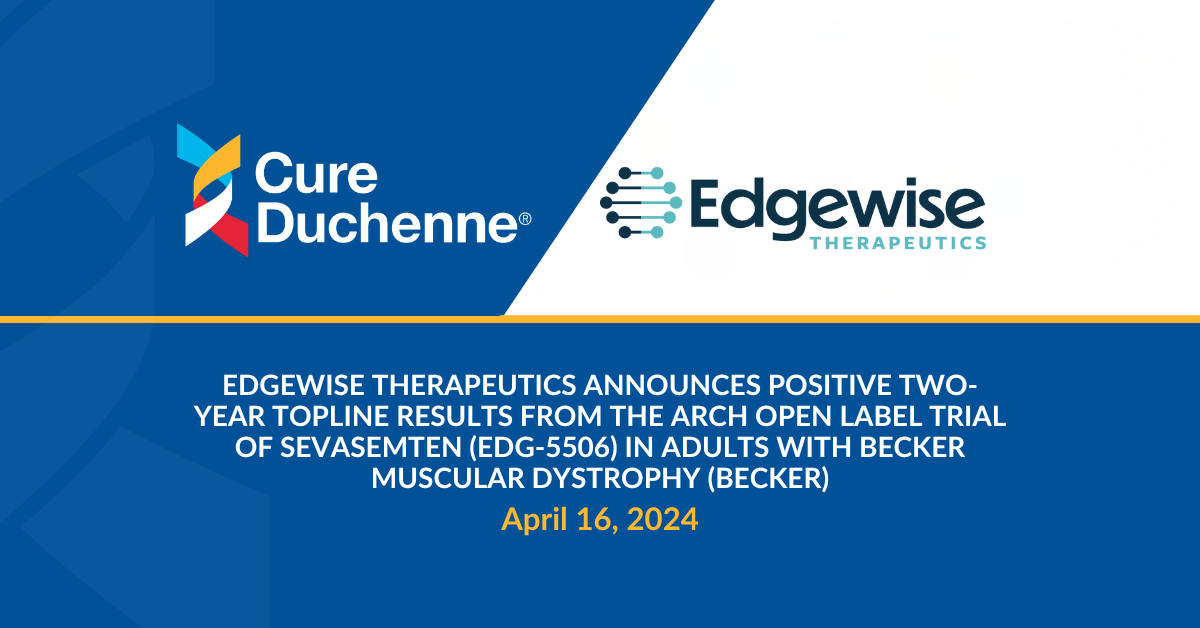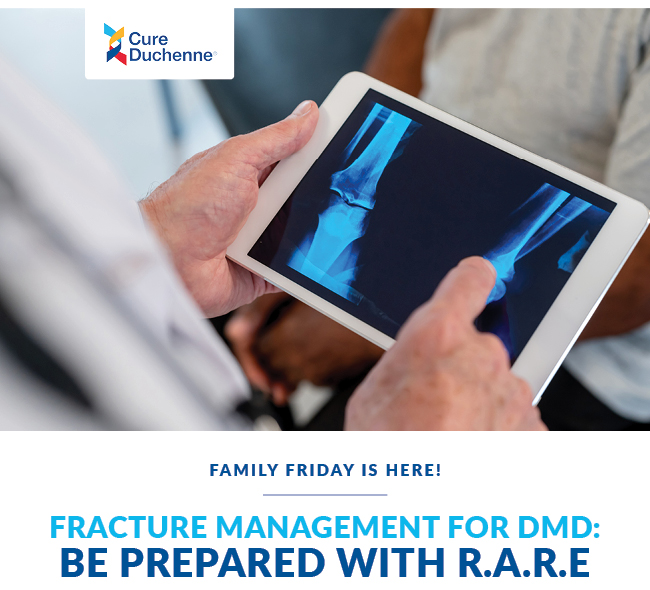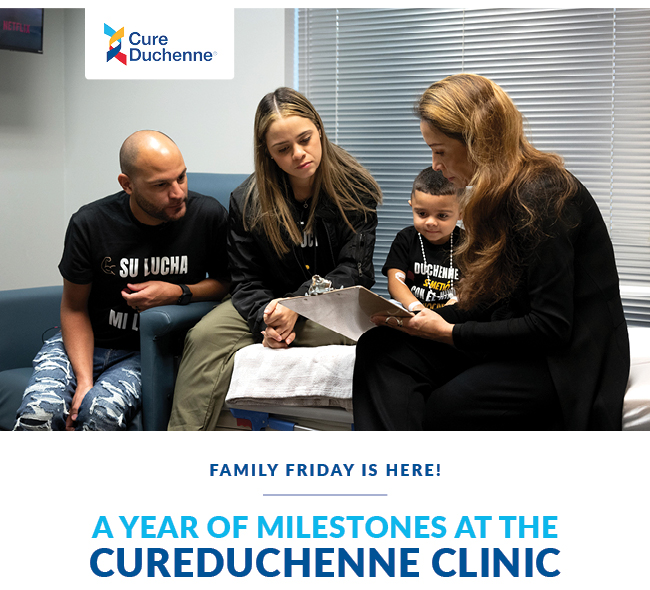CureDuchenne visits India and exchanges knowledge about Duchenne
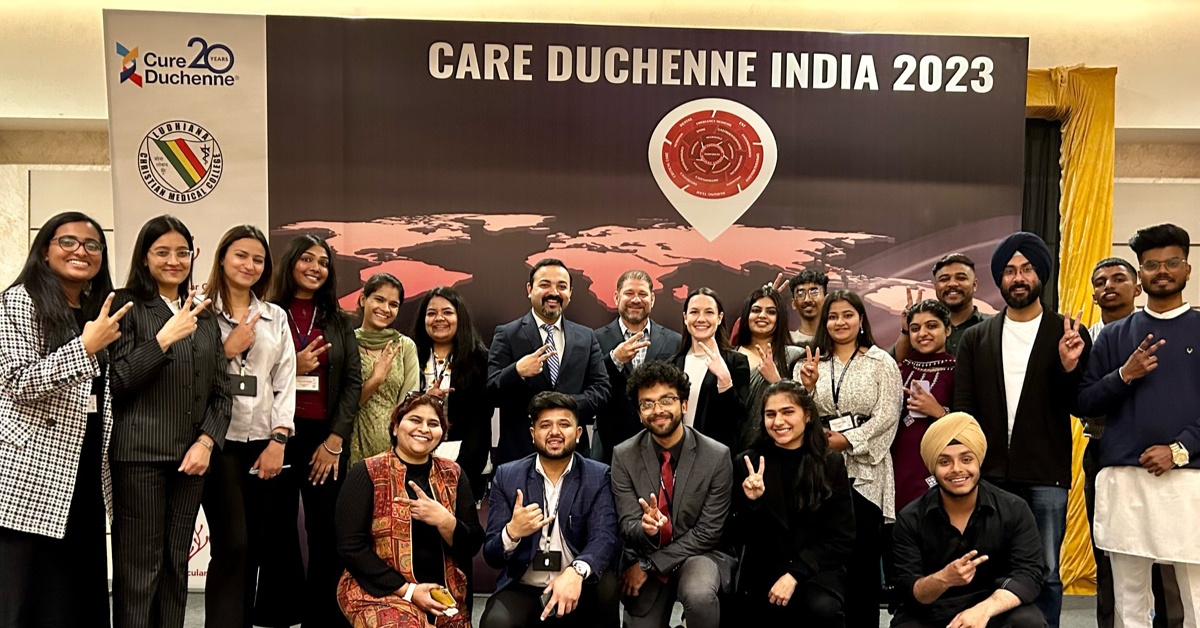
Doug Levine, PT, a physical therapist instructor with CureDuchenne, and Kerry Johnson, senior director of community engagement, visited India in February to educate physical therapists, doctors, physical and occupational therapy students, and families there and determine the type of support needed to ensure patients get the best care possible.
Along the way they met committed doctors, parents, caregivers, and patients who are moving care forward, not just for Duchenne muscular dystrophy, but also for other neuromuscular conditions and rare diseases.
This visit would not have been possible without the support of the Neuromuscular Center of Excellence Christian Medical College & Hospital and our friend Vineeth Jaison, MD, who organized visits, travel, and helped CureDuchenne understand the unique challenges and opportunities to help the Duchenne community in India. Part of Dr. Jaison’s goal is to change the life expectancy of Duchenne in India from 15 to 40 years old.
“There are people who are actively trying to make it better and we can help them get there,” Kerry said.
As part of the trip, Kerry and Doug visited the Northern Punjab region of the country before moving south to the cities of Chennai, Vellore, Bangalore, and Tirunelveli.
Ludhiana
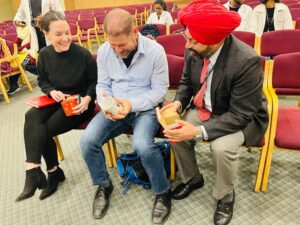
There, Doug and Kerry met Dr. Jaison and visited the Neuromuscular Center of Excellence Christian Medical College & Hospital (CMC) to kick off the program called, “Care Duchenne India.” Doug taught a six-hour professional development course.
The next day, Kerry and Doug tagged along with Dr. Jaison as his multidisciplinary team met with patients and caregivers. On Sunday, the team had dinner with individuals who have either donated to keep the Neuromuscular center open or put their time into helping the clinic get off the ground.
Chandigarh
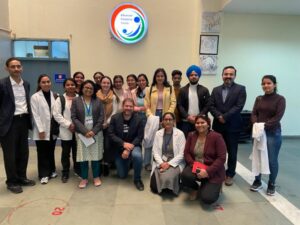
The next stop on the journey was nearby city Chandigarh, where Doug, Kerry, and Dr. Jaison met with Naveen Sankhyan, MD, and his team at the Postgraduate Institute of Medical Education and Research Chandigarh.
The CureDuchenne team was impressed by the resourcefulness of the PT clinic there and how they thought through surmounting patient challenges where there is a lack of resources, but no lack of will. For example, they were able to creatively solve problems, bringing a patient to standing position using tables and straps because no standers were available and are not covered by insurance.
Dehli
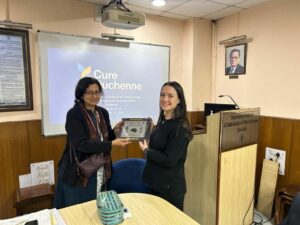
Kerry, Doug, and Dr. Jaison took the train back south to Delhi, where they visited another neuromuscular center, the All India Institute of Medical Sciences (AIIMS). It is part of a public medical university and research hospital.
There they met with Shefali Gulati, MD, and other doctors. She is a professor and chief of the child neurology division at AIIMS. Dr. Gulati also advises the government on neuromuscular diseases like Duchenne and decides where state funds should be allocated for individuals living with these conditions. They discussed how Duchenne care could be improved on the national level and throughout countries part of the South Asian Association for Regional Cooperation (Afghanistan, Bangladesh, Bhutan, India, Maldives, Nepal, Pakistan and Sri Lanka).
Vellore
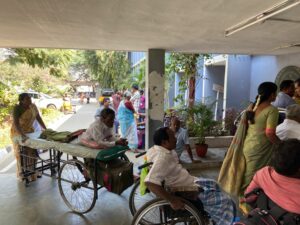
A flight to Chennai and train ride to Vellore kicked off the group’s southern tour of India. In Vellore, Doug, Kerry, and Dr. Jaison visited another CMC campus in the city, which includes one of the best spinal rehabilitation centers in the country.
The CureDuchenne team had an opportunity to witness a 3-day carnival event through the rehabilitation center, where people of various abilities participated in accessible sporting events. The holistic healing event combined annual doctor checkups with activities that yielded contagious smiles. It was a high note for the whole CureDuchenne team because it showed the importance of socialization for all people, regardless of their disability.
It was also Kerry’s last event in India and left a lasting impression on her as she traversed the Pacific Ocean on the way home.
Chennai
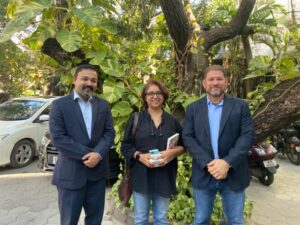
In the coastal metropolis, Doug and Dr. Jaison met with a film director and actor who made a movie, “Salaam Venky” (“Hello Venky”), about a boy with muscular dystrophy who wants to donate his organs, . The film was released in India a few months ago.
The director, known as Revathi, shares our hope of building a better future for everyone diagnosed with muscular dystrophy in India.
Tirunelveli
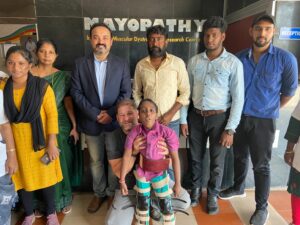
Doug and Dr. Jaison spent two days at the Mayopathy Institute of Muscular Dystrophy & Research Centre (photos above). It was founded by Napol-eon, an actor who has stared in dozens of Bollywood movies, in 2009. His eldest son, Dhanoosh, was diagnosed with Duchenne in 2005.
The center admits anywhere between 40-60 patients with Duchenne and offers aquatherapy, ambulation, developmental therapy, occupational therapy, and mental health services. Patients only need to cover food and lodging; the rest is paid for and covered by the actor.
Bangalore
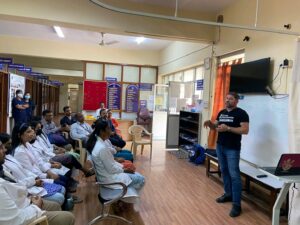
In Bangalore, Doug and Dr. Jaison met the scientists behind the Duchenne Annihilation Research Trust (DART), who are working on exon skipping in Duchenne. They also met with families associated with the BharathMD Foundation.
The next day, Dr. Jaison and Doug gave presentations on Duchenne to neurology residents, physical therapists, and occupational therapists at the National Institute of Mental Health and Neuro-Sciences.
On Doug’s final day of his two-week trip to India and before Dr. Jaison returned to CMC in Ludhiana, they met with doctors at the Synapse Neuro Centre and Child Development Centre. They had a chance to speak with families of children with spinal muscular atrophy (SMA) who are receiving Spinraza, the first approved treatment for SMA. They also spent the day with Dr. Ann Mathew and her team for their multi-disciplinary neuromuscular clinic.
Nepal
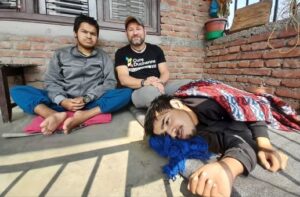
Doug went further north to the foothills of the Himalayas for a visit with CureDuchenne’s friend Nirmal Khadka, who provides food, shelter, and care for many boys living with Duchenne there. Getting to any doctor is a three-hour car ride, which is extremely difficult for the boys under Nirmal’s care. He is currently trying to find solutions for this issue.
International care
CureDuchenne is committed to moving the needle forward in care for the international Duchenne community. Our expertise in physical therapy training — such as the six-hour certification course Doug taught in Ludhiana and another visit last September to Hungary — can give local therapists the specific skills they need to treat Duchenne, so they dramatically improve the quality of life of patients. The goal of CureDuchenne’s international care program is to raise the level of Duchenne care everywhere.


